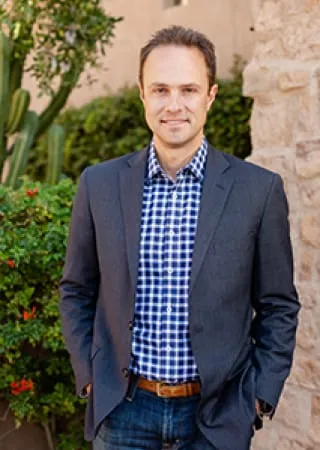
The below article was posted in the Jackson Hole Daily News on Thursday, May 17, 2018 in regards to the May 14th Teton County Board of County Commissioners meeting that took place with the state’s attorney general and Jason Ochs of the Ochs Law Firm. Ochs strongly encouraged Teton County, and other counties across the state of Wyoming, that the time to join the opioid fight was now, and that only waiting would make matters worse.
See the article in full below:
Wyoming Attorney General Peter Michael brought an entourage to Jackson on Monday to tell Teton County commissioners they’d be better off not filing their own suit against opioid manufacturers and that the state was better positioned to lead the charge.
“To say that we as a state won’t be affected by litigation brought by others is simply not accurate,” Deputy Attorney General John Knepper Jr. said. “You bring the wrong claim, you get the wrong ruling by a judge, it becomes very very difficult for the state’s attorneys to undo that.”
The decisions by counties to go it alone aren’t cost-free to the state’s overall interests, he added.
The attorney general’s urging comes at a time when counties across the country are choosing to sue on their own as a way to hold opioid manufacturers accountable for deaths and other costs. More than 600 counties nationwide have filed complaints, something Knepper coaxed Teton County not to do.
But attorney Jason Ochs, suing on behalf of Carbon County, urged Teton commissioners to file suit and trust a jury to make things right.
The meeting’s purpose was to hear the state’s legal perspective on the opioid crisis and inform commissioners on the county’s options should they decide to pursue litigation. It was followed by an executive session with the attorney general and several more people from his office. Ochs was originally scheduled for an executive session as well, but that was crunched for time and didn’t occur.
One complaint already filed
On May 8 Carbon County — represented by Ochs Law Firm — became the first in Wyoming to file a complaint regarding opiate abuse with the U.S. District Court in Cheyenne. The 72-page complaint lists more than 15 opiate manufacturing and distribution companies accused of targeting susceptible prescribers and vulnerable patient populations, using multiple avenues to disseminate false and misleading statements about opioids, misrepresenting the risks and benefits of opioids, fraudulently concealing misconduct, engaging in other unlawful and unfair conduct and other allegations.
Carbon County has the third-highest number of opiate-related deaths per capita in the state, following Fremont and Uinta counties.
The complaint says that deceptive marketing schemes caused and continue to cause an increase in opioid prescriptions in Wyoming in order to increase profits. The argument is being used in complaints around the country.
The Northern Arapaho Tribe on the Wind River Reservation has also filed suit, with the addition that opioid abuse and addiction has hurt tribal communities especially bad. Data from the Centers for Disease Control and Prevention shows that Native American overdose rates from prescription opioids are higher than other races.
Each of the filed complaints nationwide have been consolidated before Judge Dan Polster in U.S. District Court in Cleveland, Ohio, for review in what’s called multidistrict litigation. Ochs said he’d recommend the Carbon County case and a Teton County case, if commissioners decide to go that route, be tried in Wyoming with a Wyoming jury because litigants have that choice.
The AG makes its case
The attorney general’s office said they’re already in the fight against opiate manufacturers, just through a different and in their mind, more effective route than private litigation. Knepper told the commissioners that “opioid addiction is a major issue” for attorney generals across the country.
“It is something the attorney generals are working on,” Knepper said. “We have been actively involved in this effort for the better part now of a year and a half.”
He proposed a multistate effort in which Wyoming is part of a large coalition of states working together, “actively investigating opioid companies and engaging in settlement negotiations.”
Wyoming entered a multistate investigation into Purdue Pharmaceuticals, known for the drug OxyContin, in January 2017 and other drug companies in the fall of 2017, as well as joining a coalition of 41 state attorneys general who subpoenaed opioid manufacturers in September. States work to divvy up documents; Knepper said his office is now reviewing 7.5 million pages.
Under the Wyoming Consumer Protections Act, the state can demand information without going to court. Engaging in litigation discovery outside of court, Knepper said, is a benefit of letting the state do its work and not going the private route.
Knepper presented a slide with the title “the attorney general should lead Wyoming’s efforts” that detailed the benefits to the county to let the state lead the charge. Factors mentioned included the lack of contingency fee arrangements — Ochs Law Firm receives a 25 percent fee if it recovers anything — the ability to pool resources, broader settlement and that “county lawsuits impede the attorney general’s ability to address all opioid issues implicating the state’s interests.”
“In sum,” the slide read, “the attorney general is in the best position to provide a centralized response to the opioid crisis, addressing the epidemic in all parts of the state, not just one county.”
Knepper said the state will continue to review records relevant to Wyoming and identify witnesses to bring forth Wyoming-specific evidence.
“Some states will sue soon and others will hold back a little bit,” he said. “That is not an arbitrary decision, that’s all I can say about that.”
A sense of urgency
In the meantime Ochs will continue trying to persuade counties to take action individually through the private sector if they want to join the fight and get a piece of the pie. He wants to see heads roll and people go to jail for their role in the estimated 170 opioid overdose deaths each day in the U.S.
“It’s always been my opinion as a litigator that there’s only one thing that equalizes the playing field with corporations that are Fortune 500 companies,” Ochs said. “And that one thing are 12 people in a box. We call that a jury. That’s what equalizes the playing field. And the only way you get to a jury is to file a lawsuit and get it in front of a community.”
Waiting for the state, he said, isn’t ideal.
“We’ve got to do something here,” Ochs said. ”And whether it’s sit on the sidelines and wait — which I wouldn’t recommend — or get involved in the arena, there’s only one way to assure there’s a potential to ensure a good outcome, in my humble opinion, and that’s getting in the arena.”
But with that in mind, Ochs said he’d like to work with the attorney general and not be at odds with the state.
“This is the first time I’ve been in a setting where I almost feel, subtly, a little bit of tension between where I stand and where the attorney general stands,” Ochs told commissioners Monday. “And I’m sorry for that. I am. I hope that’s just my own feelings this morning and not anything other than that. I don’t want there to be any wedge whatsoever driven between the private side and the regional side in this effort to stop what is without question, the greatest public health emergency of our century, of our generation. That cannot be over-exaggerated.”
Commissioner Paul Vogelheim was the only member absent. Commission chairman Mark Newcomb said he’d gauge the temperature of other commissioners Monday to see what information they might be interested in receiving from Ochs before moving forward — more of a straw poll, he said. He hopes to have an action item on the commission’s agenda by the June 5 meeting.
“I do feel like we need to get going on something here because it matters here in Teton County,” Newcomb said. “We have not faced the crisis in any severity that some of the other counties nationwide have, but it is here and why not address it as best as we can? I’d like to see us move forward with something.”






